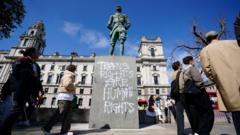WASHINGTON — The Justice Department is responding to a federal judge’s demand for additional details regarding the deportation flights that occurred over the weekend, following President Donald Trump’s invocation of the rarely applied Alien Enemies Act.
U.S. District Judge James Boasberg had instructed the Trump administration to provide clarifications on the scheduling of the deportation flights and the handover of deportees, allowing until noon Wednesday for the government to comply.
On Wednesday morning, the government filed a request for a hold on Boasberg’s order to answer his inquiries.
“Continuing to pursue irrelevant details solely to extract legally insignificant facts from the Government, which pertain to core functions of the Executive Branch, is both unnecessary and counterproductive to addressing the genuine legal issues at play in this matter,” the DOJ stated in its filing.
Boasberg had initially required the government to respond to his questions regarding the flights by noon Tuesday. The Justice Department refrained from answering several of his inquiries, asserting that, “If, however, the Court still mandates the Government to furnish additional information, such a request should be executed through an in camera and ex parte declaration to safeguard sensitive data pertaining to foreign relations.”
Boasberg concurred and instructed DOJ lawyers to provide under seal the responses to his inquiries about the deportations conducted under the rarely invoked wartime legislation by noon Wednesday.
In its Wednesday response, the government criticized the judge for agreeing to its suggestion and recommended he refrain from taking any actions until an appellate court adjudicates its request for a stay.
“The Court has now invested more time in uncovering details about the Government’s flight arrangements and foreign country relations than it did investigating the facts prior to certifying the class action in this matter. This discrepancy illustrates how convoluted this case has become, as excessive micromanagement has overshadowed the consideration of the case’s legal principles,” stated the DOJ filing. “The diversion caused by the specific facts concerning airplane movements has prolonged this case unnecessarily and should cease until the Circuit Court has had an opportunity to evaluate the situation,” it concluded.
The legal dispute commenced after Boasberg halted deportations initiated under the Alien Enemies Act of 1798. On Saturday, Boasberg instructed that aircraft transporting individuals being deported under the authority of the act must return. Flights carrying deportees subsequently landed in El Salvador, raising concerns about whether the government ignored a court directive.
In a filing on Tuesday, the government contended that the judge’s order lacked appropriate jurisdiction “because the presidential actions they contest are not amenable to judicial review.” The administration further claimed it did not breach the judge’s order because “the relevant flights departed U.S. airspace” prior to Boasberg’s written judgment.
Nevertheless, in the same filing, the government declined to disclose the information requested by the judge, arguing that the government should “not be compelled to reveal sensitive information regarding national security and foreign relations” until the pause motion is resolved.













 Bengali (Bangladesh) ·
Bengali (Bangladesh) ·  English (United States) ·
English (United States) ·